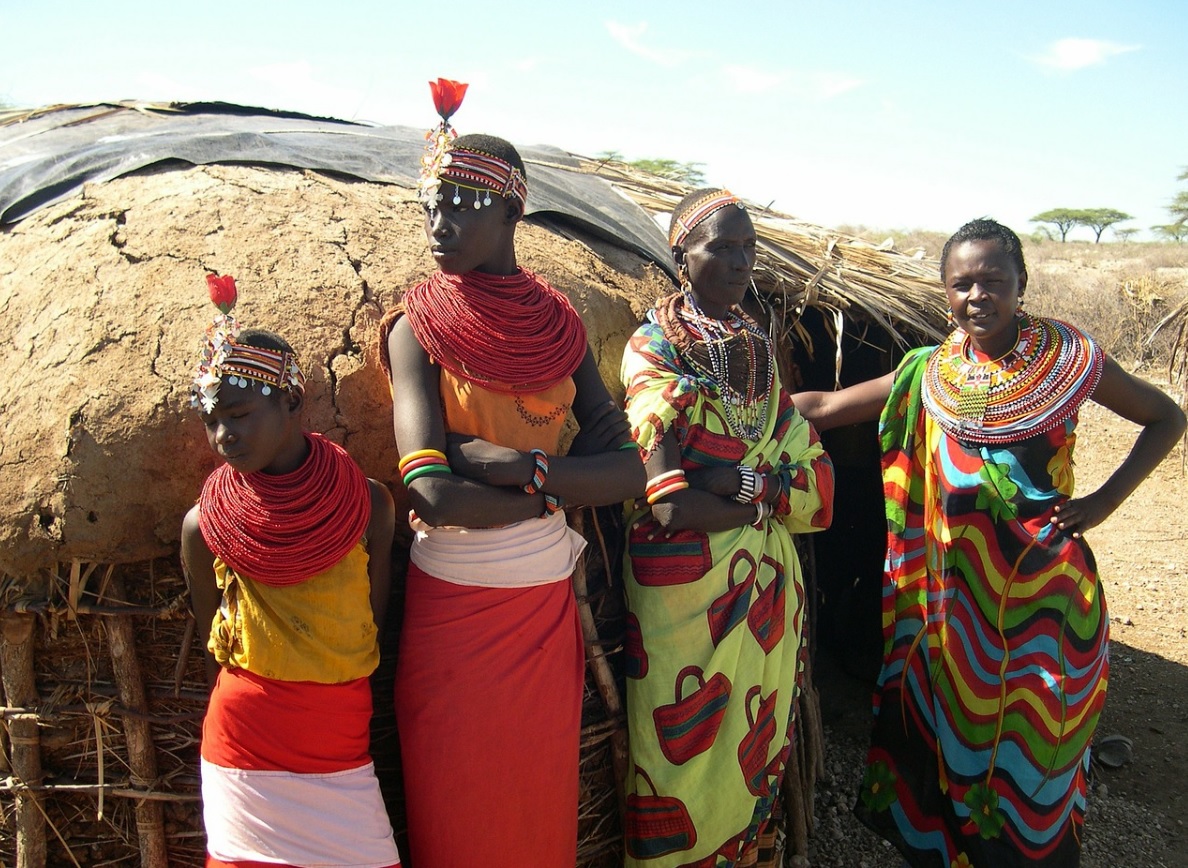Wakati Wetu Festival in Nairobi Calls for Reparatory Justice for Africans
“We often think about colonialism as something that’s finished, but we are still living in its long shadow,” said Khadhraoui.

In a powerful call for truth, justice, and historical reckoning, Amnesty International has urged global action toward reparatory justice for Africans and people of African descent, ahead of the Wakati Wetu Festival—a first-of-its-kind gathering to be held in Nairobi, Kenya, from 22–23 October 2025. The event, whose name Wakati Wetu translates to "Our Time" in Swahili, is set to bring together artists, activists, policymakers, and cultural educators from across the world to confront the ongoing legacies of slavery, colonialism, and systemic racism.
A Global Platform for Reparatory Justice
The Wakati Wetu Festival is jointly organized by African Futures Lab, Baraza Media Lab, Reform Initiatives, and the Deep South Solidarity Fund, with Amnesty International serving as one of the key partners. The two-day festival will serve as both a cultural celebration and a policy forum, providing a platform for hundreds of participants — including musicians, writers, human rights defenders, and scholars — to exchange ideas on how reparatory justice can be achieved in practice.
Amnesty International's Racial Justice Advisor, Rym Khadhraoui, highlighted the importance of the event, saying that while many view colonialism as a closed chapter, its economic and social repercussions continue to shape lives across Africa and the African diaspora.
"We often think about colonialism as something that's finished, but we are still living in its long shadow," said Khadhraoui. "Across the world, people are still suffering the long-lasting effects of colonialism and struggling to get the reparations they deserve from governments."
She emphasized that true reparations go beyond financial compensation — they must include institutional transformation, acknowledgment of harm, and dismantling contemporary structures that perpetuate inequality.
Linking Past Injustices to Present Inequalities
The festival will explore the enduring legacies of the transatlantic slave trade, colonial exploitation, and racial injustice, connecting these historical crimes to modern disparities in wealth, land ownership, and governance.
The sessions will focus on several core themes:
-
Historical Memory and Truth-Telling: Understanding how the slave trade and colonialism shaped modern social and political realities.
-
Legal Pathways to Reparations: Examining how litigation and international law can be used to secure accountability and redress.
-
Media and Narrative Change: Discussing how storytelling, journalism, and the arts can reshape global narratives about Africa's history and dignity.
-
Land Restitution and Tax Justice: Addressing the structural roots of inequality and envisioning models of redistributive justice.
Speakers and performers will not only share academic perspectives but also use art, music, and poetry to give voice to lived experiences of colonial and racial oppression.
High-Profile Voices and Performers
The Wakati Wetu Festival will feature an impressive line-up of African and international figures who have been at the forefront of cultural resistance and advocacy for justice.
Among them are:
-
Yvonne Adhiambo Owuor, the award-winning Kenyan novelist and poet known for her evocative portrayals of postcolonial identity;
-
Beatrice Waithera Maina, a Kenyan human rights activist recognized for her grassroots advocacy and youth mobilization;
-
Eric Wainaina, one of Kenya's most celebrated singer-songwriters and social commentators, whose music blends activism with art; and
-
Naira Leite, a Brazilian activist leading the "One Million Women's March" in Brazil on 25 November, highlighting global solidarity among women of African descent.
This diverse assembly of voices reflects the festival's goal of fostering Pan-African and transnational unity in the struggle for justice and equality.
Africa's Decade of Reparatory Justice
The Wakati Wetu Festival coincides with the African Union's "Theme of the Year", which was recently extended into a Decade of Action for Justice and Reparations. The AU's focus on reparations recognizes the urgent need to confront colonial-era injustices that continue to affect African nations — from resource exploitation to cultural erasure and economic dependency.
Amnesty International praised the AU's commitment and underscored that reparations must include restitution, rehabilitation, acknowledgment, and guarantees of non-repetition. The organization also called on European nations, especially those with colonial histories, to move beyond symbolic gestures and engage in meaningful reparatory dialogue.
Beyond Apologies: A Movement for Structural Change
The call for reparatory justice has been gaining momentum globally, with civil society movements pushing for truth commissions, heritage restitution, and decolonized education systems. Activists argue that reparations are not only about compensating for past wrongs but also about transforming present-day systems that perpetuate racial and economic inequality.
As Khadhraoui explained, "Reparation involves not only justice for the historic wrongs of slavery, the slave trade, and colonialism; it requires dismantling contemporary systems and structures of racial discrimination and inequality."
A Festival of Reflection and Action
More than just a conference, the Wakati Wetu Festival aims to merge art, history, and activism to build solidarity across borders. Through panel discussions, workshops, and performances, participants will envision how reparations could empower communities and inspire new frameworks for justice, healing, and resilience.
The event also symbolizes Africa's growing cultural confidence and leadership in shaping the global conversation on reparations. By hosting it in Nairobi, organizers hope to root the movement in African soil — reminding the world that the demand for reparatory justice is both a moral imperative and a developmental necessity.
As the first festival of its kind in Africa, Wakati Wetu signals a renewed commitment to reclaiming narratives, restoring dignity, and advancing the global struggle for racial justice.








